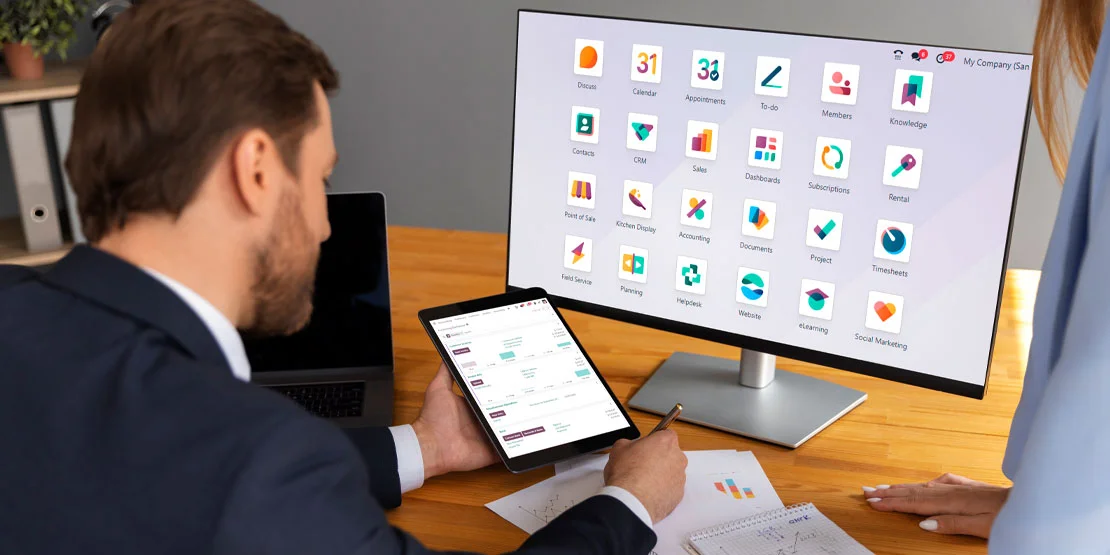Role of ERP
Nowadays people are going with open source ERP solutions. Odoo is one of the best open-source ERP systems. The application suite includes Accounting, Document Management, eCommerce, Human Resources, Industries, Localization, Manufacturing, Marketing, Point of Sale, Productivity, Project, Purchases, Sales, Warehouse, Website, and more. Some of the reasons to choose Odoo ERP:
Streamlining Processes and Data Integration
One of the primary functions of an ERP system is to streamline business processes by eliminating redundancies and improving efficiency. Traditional manual processes are time-consuming and prone to errors, leading to delays and inefficiencies. An ERP system automates these processes, allowing for seamless data flow across departments. From finance and inventory management to human resources and customer relationship management, an ERP system integrates various functions, ensuring that information is shared in real-time and eliminating data silos.
Improved Collaboration and Communication
Effective communication and collaboration are essential for any business to thrive. ERP acts as a central hub that connects different departments within an organization, facilitating better collaboration and communication. With a shared database and real-time information updates, teams can work together more effectively, ensuring that everyone has access to the same accurate data. This leads to improved decision-making, as managers can rely on up-to-date information to analyze trends, make forecasts, and plan strategies.
Enhanced Efficiency and Cost Reduction
By automating processes and reducing manual intervention, ERP systems significantly enhance operational efficiency. Tasks that previously required hours of manual work can now be completed in a fraction of the time. This not only saves valuable resources but also reduces costs associated with errors and rework. ERP systems also enable better inventory management, optimizing stock levels and reducing carrying costs. Furthermore, by providing insights into resource utilization and production planning, ERP systems help organizations make informed decisions that minimize waste and maximize efficiency.
Defining Project Scope and Timetables
Odoo consultants collaborate closely with your team to determine the project scope and establish realistic timetables for going live. They take into account numerous elements such as customisation requirements, integration demands, and process complexity to guarantee that the project is well-planned and accomplished within the timeframe specified.
Real-time Insights and Informed Decision-making
In today's fast-paced business environment, timely and accurate information is crucial for making informed decisions. ERP systems provide real-time insights into various aspects of a business, enabling managers to monitor performance, identify bottlenecks, and spot trends. With comprehensive reporting and analytics capabilities, ERP systems generate meaningful data visualizations and reports, empowering decision-makers to take proactive measures and make strategic choices based on reliable information.
Scalability and Adaptability
As businesses grow, they need systems that can scale and adapt to their changing needs. ERP systems are designed to accommodate growth and expansion. Whether it's adding new functionalities or integrating with other software systems, ERP solutions can be customized to meet the specific requirements of a business. This scalability ensures that organizations can continue to rely on their ERP systems as they evolve, without the need for significant disruptions or costly replacements.



 USA
USA INDIA
INDIA